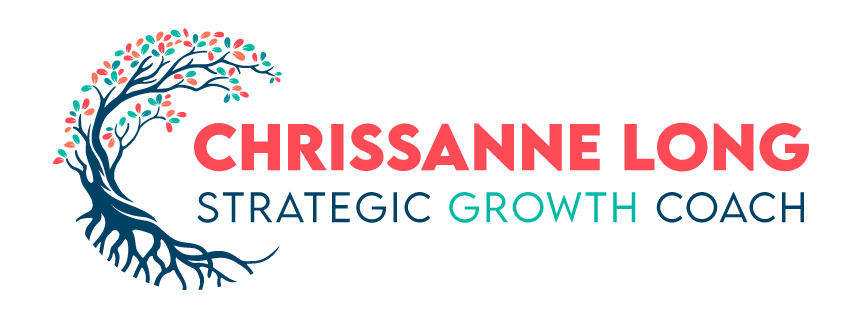All Groups are NOT Created Equal – Finding Value in Online Communities
The Lakeland Business Leaders is an online group that has been bringing people in Lakeland together for the past 2 years. The group began on Facebook, and most of the connections and interactions are still being developed within the social network. There are a lot of things I have learned about building online communities, and I continue to learn as we grow. One of the biggest concerns I hear from business owners and clients is that Facebook and other Social Networks are a time suck. I can understand why this can become a problem for novice Facebook users (and even some advanced users). Without a strategy or a plan, anything can be a time suck! Here are the top 5 Things To Look for in an online community to avoid wasting too much time in communities that will not provide value or benefit to the local small business professional or business owner.
Keep in mind, the number one reason to get involved in online communities is to build your brand and your authority on your area of expertise.
1. Guidelines
Without rules, any community will become impossible to manage and probably become ineffective at bringing value to the members. Accountability should be placed on the members to adhere to the guidelines, but there are also moderators who can assist if there are certain guidelines needing to be enforced. For example, one of the guidelines in the Lakeland Business Leaders Community is that the members use their individual names, not their business name. This rule is necessary, in my opinion, if there is to be any level of authenticity to the relationships being formed. No one asks the Auto Body Repair Company to coffee at Mitchell’s! They ask an individual, an owner, or an employee to coffee. When we know who the person is that we are communicating with, we can begin to build trust and get to know the personality and character of the individual. Some might argue that if the product is good, it doesn’t matter what kind of person is selling it. I disagree, wholeheartedly, but that’s something for the person who is making purchasing decisions to decide for himself. As for online communities, if you are networking with people, make sure you know who the people are. It’s in everyone’s best interest in the community to know what the rules are, but you are ultimately the one in control of your security and safety. Choosing groups that have guidelines might make them more reliable and force the members to be held accountable. No matter what, always do your own due diligence when choosing to do business with someone you have only met online!
2. Look for Engagement
When you are looking for groups to join, check out the engagement of the members. If you see one person posting all the time, without any commentary or feedback from other members of the group, chances are, that’s the dynamic of the group. Similarly, if you see a lot of different people posting promotional/advertisements and there is no conversation going on, that’s likely how the group functions. If you are just looking for a group to post links and aren’t concerned with getting any feedback or engagement, ask yourself if this is the best use of your time and effort. The fact is, people aren’t going to be interested in staying up to date with a group that resembles a television channel with no programs, only advertisements. If your objective is to grow your business, look for places that are interested in you, and a place that has other people you are also interested in. Some may argue that there is search engine benefit to the links being shared, but research shows that SEO is only benefited with links that are “Do Follow” and the links inside Facebook groups are “No Follow”. Posting links for the sake of posting links is not a strategy that any professional online marketing consultant would recommend.
3. Real-Life Meetings
Face it, online relationships are tenuous at best. You don’t always know if a person is genuine by the way they post in a social network. It’s important that the members of the group have an opportunity to meet “In Real Life”. While online networking makes it possible to build and nurture business relationships in faster, more efficient way than traditional networking, where the rubber meets the road is actually in the face to face meeting. When you can look someone in the eye, and get a feeling for their character and their business acumen, you can really begin to build legitimate business connections. It doesn’t happen overnight, especially when you are new to the community. Make sure you give yourself time to build and nurture the business relationships and by all means, make sure you show up to the events! There’s so much truth the the famous quote by Woody Allen: “80% of success is showing up.” No online community is going to replace a solid marketing plan. But networking should be part of any local business’s marketing plan. With any organization, you will always get back in equal amounts what you put in. If you give value to the members both online and when networking in real life, you’ll begin to see others referring you and recommending you more frequently – but it will be difficult if no one in the group actually feels like they “know” you. So, show up and become the known authority on the topics at which you excel!
4. Who are the Members?
Take a look at the people in the group. It’s OK. See who they are, what they do and how they interact online. Are they potential customers/clients? Do they represent your demographic? Are they in your target market? I see a lot of groups of people who do the same things. If you’re in a group with a bunch of people who do the same things that you do, it’s likely you are not going to be getting a lot of new business from that group! It’s important to consider the time investment if you’re going to be building relationships with the people in the group. There are all kinds of different groups for a lot of different niches and topics. If you’re interested in becoming a known expert on a particular topic, building relationships in an online community is an excellent way to do this. Just pay attention to the group’s members and decide if it’s a place you want to invest your time and energy.
5. In How Many Groups can you Really Participate?
Facebook limits your account to “only” joining 300 groups. Really? 300 groups? How would anyone ever get anything done? When selecting the groups you are going to join, be realistic and don’t spread yourself too thin. It might be tempting to join all of the groups on Gardening, for example, but there is no way you can actually keep up with all of the groups, and most importantly, you will have a difficult time building your authority/expert status in all of the groups on gardening. Select the groups you have a passion or strong interest in, and in which you can legitimately bring value as well as gain value. Online community building should always (yes, always) provide a win-win opportunity in order to warrant your involvement. Don’t expect to get if you are unwilling to invest in the community, but also, don’t allow yourself to be the one always giving. When there is balance in the community, everyone wins.





